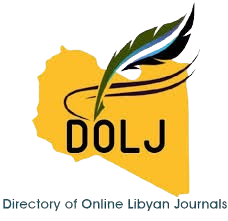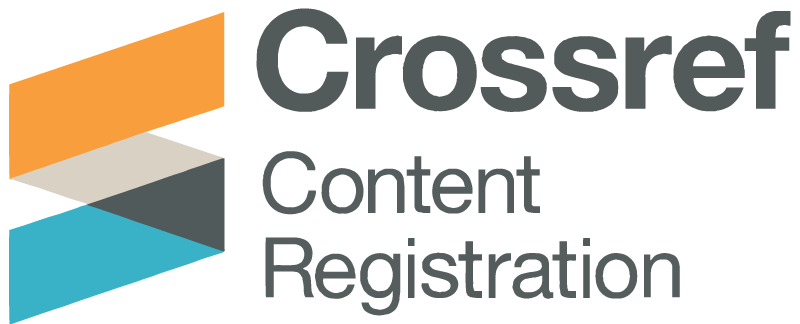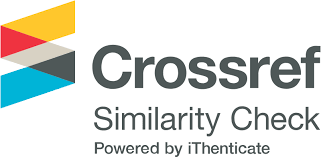Training Apps, Strategies, and Modules as a Key Academic for New Engineering Textbooks on Creative Thinking
DOI:
https://doi.org/10.64516/r0vdrj49Keywords:
Research on Educational Key Technology, Virtual Learning Resources, Applications for simulation, and runtime for COMSOL.Abstract
Fundamental engineering principles must be taught proficiently in universities in order to educate the next generation of engineers. The project's execution goal is to use interactive visual aids to modernize existing engineering courses at Elmergib University. The use critical engineering labs, has become increasingly challenging. Visual teaching aids and virtual training materials are in high demand among instructors to help students learn remotely. COMSOL is an exciting visual tool for training students about physical phenomena, owing to its strong Multiphasic setup and very user-friendly user interface. Regrettably, even with extensive online instructions, a learning curve limits many instructors from adopting it into their classes. Similarly, some universities might up to purchase expensive license packages for the most significant simulators. The Edali et al. research group of Elmergib University aims to construct self-contained COMSOL executable runtime Apps through their simulation application development initiatives. By downloading them for free from anywhere in the globe, you are able to utilize these App libraries "out of the box" to understand the science underlying the simulation. Each app is designed for Windows and macOS. The free COMSOL runtime libraries must be installed only once when users launch an application for the first time. Experimenting with alternate ways to share knowledge platforms and studying creative approaches to organize student-instructor interactions to improve learning are two examples of educational media creation advances. That promotes technology-based resources and techniques in education through computational engineering projects. The authors' research advances based on experiences in student-instructor interactions improves the engineering curriculum.
References
1. Craft, A. (2010). Creativity and education futures: Learning in a digital age. Oakhill, Stoke-on-Trent, Staffordshire, ST4 5NP, UK: Trentham Books Ltd. Westview House 734 London Road.
2. Cropley, A. (2012). Creativity and education: An Australian perspective. IJCPS-International Journal of Creativity and Problem Solving, 22(1), 9
3. Harris, A. (2016). Creativity, education and the arts. London, UK: Palgrave Macmillan. doi, 10978-1.
4. Henriksen, D., Creely, E., Henderson, M., & Mishra, P. (2021). Creativity and technology in teaching and learning: A literature review of the uneasy space of implementation. Educational Technology Research and Development, 69(4), 2091–2108.
5. Henriksen, D., Henderson, M., Creely, E., Ceretkova, S., ˇCernochov´a, M., Sendova, E., … Tienken, C. H. (2018). Creativity and technology in education: An international perspective. Technology, Knowledge and Learning, 23(3), 409–424.
6. Henriksen, D., Mishra, P., & Fisser, P. (2016). Infusing creativity and technology in 21st century education: A systemic view for change. Educational Technology & Society, 19 (3), 27–37.
7. Edali M., Sahem Z., Ben Rajeb F. and Elkamel A., The Use of Application Builder & COMSOL Multiphysics as a Tool to Build and Deploy Simulation Apps for Heat Transfer, The International Conference on Technology in the Classroom, IICTC-Hawaii Proceedings USA, pp. 1-19 (2017).
8. Edali, M., Sahem, Z., Ben Rajeb, F. Alaswad, W. Bseibsu, A. and Elkamel. A., Fluid Mechanics Phenomena Class Computational Apps for Engineering Students, Albahit journal of applied sciences 2 (1), 46-53, 2021.
9. Edali M., Alaswad W., Bseibsu A., Sahem Z., Ben Rajeb, F. and Elkamel A., Chemical engineering graduate courses curriculum development with simulation components, Journal of Pure and Applied Sciences,vol.20,no.3,pp.64-73,2021. https://sebhau.edu.ly/journal/index.php/jopas/issue/view/32. Proceedings of the first national conference for the development of higher education institutions, Sebha University, Libya, December 12, 2020, http://nchel.sebhau.edu.ly/.
10. Edali M., Alaswad W., Bseibsu A., Sahem Z., Ben Rajeb, F. and Elkamel A., Chemical Engineering Research Group website at Elmergib University, https://sites.google.com/view/edali-et-al-engineering-educ/list-of-research-scientific-conferences-and-journals/5th-imeom-conference-dhaka-bangladesh-december-26-28-2022-ieom-dhaka-c?authuser=0, May 20, 2022
11. Edali, M, Milad, A. Alaswad, W. Sahem, Z. Ben Rajeb, F. and Elkamel A., An Educational Computer-Aided Heat Exchanger Design Software, Fourth European Conference on Industrial Engineering and Operations Management, Rome, Italy, August 2-5, 2021, http://www.ieomsociety.org/rome2020/.Edali, M. Milad, A. Alaswad, W. Sahem, Z. Ben Rajeb, F. and Elkamel A., Analysis Approach Development of Transport Phenomena for Engineers in Industry: basic concepts and advanced solving techniques, The 4th International Conference on Science and Technology, Sebha University, Sebha, Libya, vol. 20 no. 4, pp. 83-88, 2021, The 4th international conference of Sciences and Technology. (http://sebhau.edu.ly/journal/index.php/jopas/article/view/1687).
12. Edali, M. Milad, A. Alaswad, W. Bseibsu, A. Sahem, Z. Ben Rajeb, F. and Elkamel A., An Efficient Merge of Online Teaching and Distance Learning Strategies in Chemical Engineering Computer Applications During the COVID Pandemic, The 4th Conference on Engineering Science and Technology, Zliten, Libya, CEST-2021, Dec 14-16,pp.694-707,2021, https://drive.google.com/file/d/158Abd9u7zNIqu134tbFf8N32tY3bUrl5/view
13. Plawsky J. L., Transport Phenomena Fundamentals, 3rd ed. CRC Press, Boca Raton, Fl., 2014.
14. Sahem, Z., Edali, M., Ben Rajeb F. and Elkamel, A., The Transport Phenomena Course Teaching Strategies using COMSOL Simulation Apps for Engineers and Scientists, The International Conference on Education, IICE-Hawaii2017 proceedings USA, pp. 77-99, 2017.
15. Chemical Engineering Research Group website at Elmergib University, for this research work for, Tobruk University Journal of Engineering Sciences (TUJES), 2023, “Training Apps, Strategies, and Modules as a Key Academic for New Engineering Textbooks on Creative Thinking”. https://sites.google.com/view/edali-et-al-engineering-educ/list-of-research-scientific-conferences-and-journals/journal-libya?authuser=0
Downloads
Published
Issue
Section
License
Copyright (c) 2025 Mohamed Edali, Asma Milad, Walid Alaswad, Zaed Sahem, Ali Elkamel (Author)

This work is licensed under a Creative Commons Attribution 4.0 International License.













